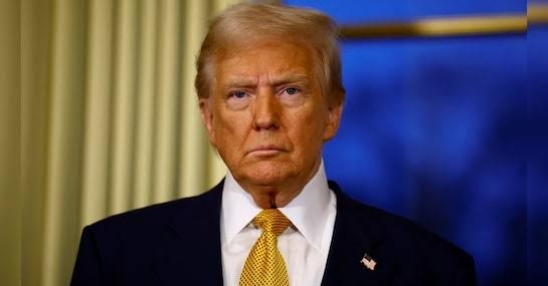In recent years, discussions about the Trump Gold Card have surfaced alongside debates over U.S. immigration policies, particularly the EB-5 visa program. This investment-based pathway to a green card has long attracted wealthy individuals, including Russian oligarchs and other elites, seeking U.S. residency. Given the program’s ties to the wealthy and powerful, critics argue it fosters an oligarchy, allowing the ultra-rich to essentially “buy” their way into America.
What Is the EB-5 Visa?
The EB-5 program—officially known as the EB-5 Immigrant Investor Visa Program—was created in 1990 to stimulate the U.S. economy through job creation and capital investment. To qualify for an EB-5 green card, foreign investors must invest at least $1.05 million in a U.S. business or $800,000 in a targeted employment area (TEA) and create or preserve at least 10 jobs. Wealthy applicants, including oligarchs, often take advantage of this pathway, leading to controversy over its fairness and national security implications.
Trump’s Gold Card and Its Immigration Ties
The concept of a Trump Gold Card has been linked to the former president’s branding strategy, often symbolizing loyalty and exclusivity. However, some reports and immigration news sources have drawn parallels between Trump Gold Cards and the EB-5 visa, given the program’s appeal to elite investors willing to pay millions for U.S. residency.
The EB-5 program has historically attracted Russian oligarchs, Chinese billionaires, and other wealthy individuals seeking U.S. residency through investment. While the program is legal, critics argue it disproportionately benefits the ultra-wealthy while ordinary immigrants face stricter pathways to citizenship.
EB-5, Wealth, and Controversy
The EB-5 visa has been criticized for being a “golden ticket” for the rich. While the minimum investment is $800,000, many investors contribute far more—often over $5 million—to secure faster processing and better investment opportunities. Some have likened this to a “Trump Gold Card Visa,” where money, rather than merit or skill, determines immigration status.
Despite its controversy, the EB 5 visa remains popular among foreign investors, particularly those from China, India, and Russia. However, increased scrutiny of the program—especially concerning national security risks posed by Russian oligarchs and other politically connected figures—has led to periodic reforms.
The Future of the EB-5 Program
With ongoing immigration debates, the EB-5 program continues to face reforms to prevent fraud and abuse. The Biden administration and lawmakers have proposed stricter background checks and increased oversight of foreign investments. However, the program’s fundamental principle remains: wealthy investors can obtain U.S. residency in exchange for substantial financial contributions.
As discussions about Trump’s Gold Card persist, parallels between gold cards and investment-based immigration raise important questions about fairness and privilege in the U.S. immigration system. While the EB-5 visa offers a legal pathway to a green card, it continues to fuel debates about whether American residency should be a commodity available to the highest bidder.
- Daylight Savings Time 2025: When Will the Time Change?
- Nagaland State Lottery Results – Check Today’s Winning Numbers
- India vs New Zealand Final 2025: Match Time, Players, and Key Details
- Škoda Kushaq and Slavia Get Price Cuts and New Variant Names
- Samsung Galaxy A56 5G and A36 5G: A New Era of Mid-Range Smartphones
astrological predictions astrology Australia open auto Automotive Bigboss Bollywood car Castaic fire Citizenship cricket Crypto daily horoscope Darshan rawal Donald trump Executive Order Festivals Finance Football Georgia HMPV China horoscope horoscope today Lottery Mg majestor mobile phones Movies Netaji Subhash Chandra Bose jayanti oneplus 13r rashi rashiphal Result S25 ultra sports Super bowl 2025 Umar nazir mir Upsc Usha vance Virendra Sehwag zodiac zodiac sign आज का राशिफल हिंदी हिन्दी हुंडई एक्सटर


Leave a Reply